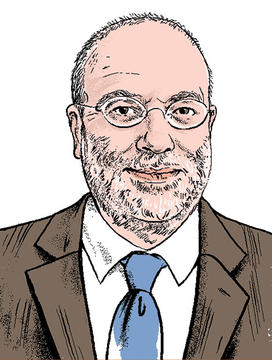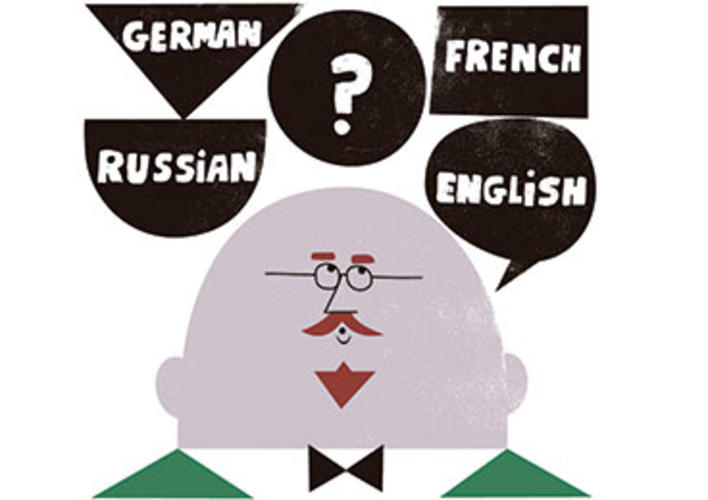
In high school, Professor Michael Gordin was determined to become a physicist, with history as something he read about in his “fun time.” That is, until he entered Harvard and discovered that practicing physicists don’t spend their time debating “the more philosophical questions” and 19th-century theories but rather “are solving problems and moving the field forward,” he says with a laugh. “That was a big revelation for me.”
Fortunately, Gordin stumbled upon the history of science, which allowed him to talk about those philosophical and historical questions that he was interested in while also exploring the effects of science on politics, culture, and broader life.
“I’m just fascinated by how ideas can reshape how people think about themselves.”
Gordin’s Studies: A Sampling
TECHNICALLY SPEAKING Gordin’s investigation into a dispute over who invented the periodic table became an exploration of the importance of language in science, resulting in his 2015 book Scientific Babel: How Science Was Done Before and After Global English. The book reveals how scientist Dmitri Mendeleev’s original periodic table, published in Russian in 1869, posed a problem for his predominantly German-, French-, and English-speaking peers. Gordin explores what using many languages meant to science and how science’s global shift to English has “increased efficiency, but it has also been rather unfair.”
ON THE EDGE Since middle school, Gordin has been fascinated by the boundary between “good science” and “fringe science — or what people call pseudoscience.” So when he heard that Princeton had the archives of Immanuel Velikovsky, a local scholar famous in the 1950s for his controversial and widely debunked planetary theories, Gordin pounced on them — resulting in his 2012 book The Pseudoscience Wars: Immanuel Velikovsky and the Birth of the Modern Fringe. “I was interested in a bunch of epistemological questions about what counts as knowledge and what doesn’t,” he says. “These fringe movements ... Where do they come from? What makes them tick? And why do they persist for so long? You learn a lot about the mainstream by looking at the fringe.”
BOMBSHELL NOTIONS It’s often said that nuclear weapons ended World War II. But there were five days between the detonation of the second atomic bomb in Nagasaki and Japan’s surrender — and several more weeks before the official surrender documents were signed and the war ended. What were people’s attitudes then toward this new and devastating weapon? Gordin explores that in his 2007 book Five Days in August: How World War II Became a Nuclear War. “The certainty and the bright lines [around nuclear weapons] that we see in retrospect were very blurry to the people living through [that time],” Gordin says.














No responses yet